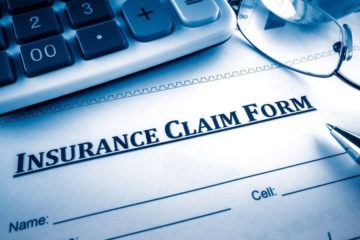If you believe you have been wrongfully denied an insurance payment for a covered loss, you have a right to seek compensation for bad faith. If you wish to review your options, talk to an experienced insurance lawyer as soon as possible. The law imposes a statute of limitations, which varies from state to state, giving you a limited time in which to pursue your claim. Contact an experienced insurance attorney to discuss your options.
- What is involved when litigating a business issue?
- What are some alternatives to litigation?
- What is the difference between mediation and arbitration?
- Is the result of mediation or arbitration binding?
- Can results from mediation or arbitration be appealed?
- What is a class-action lawsuit?
- Can business entities participate in a class action?
- What is the legal fee arrangement for a class action?
Class action lawsuits are brought by named plaintiffs, usually one or two, whose alleged injuries are the same as those of a large number of other parties. The plaintiffs do not have to be individuals; businesses may also be class plaintiffs. The purpose of a class action is to combine many similar causes of action. The cause of the common injury could be from any number of sources, such as from violations of federal regulations, product defects, securities fraud, or environmental issues. When multiple plaintiffs with similar claims are involved, litigating each case individually would be expensive and time consuming. A class action suit allows for a combined effort, potentially saving litigation costs and time spent in preparation for and in court.
A bad faith denial of an insurance claim is a breach of the insurer’s duty to exercise good faith and fair dealing, which is implied in every insurance contract. There are a number of ways an insurance company may act in bad faith. For more information about bad faith claims, talk to an experienced lawyer.
In some instances, a business may want to avoid a complicated and expensive courtroom battle by using instead an alternative dispute resolution (ADR) method. ADR is a way to resolve legal issues without going to court. The two most frequently used forms of ADR, described below, are arbitration and mediation.
If your business is facing a legal battle, contact us to discuss using ADR as an alternative to a traditional lawsuit.
A permanent brain injury may be difficult to recognize or prove. Changes in a person’s behavior or personality may be subtle. But with all damage to the brain, the earlier a brain injury is diagnosed, the earlier a person can begin a treatment program. This article discussed different types of brain injuries including a closed head injury and swelling of the brain.
Brain injuries can generally be classified by their cause. There are injuries caused by contact and those that are not caused by contact. This article discusses causes of brain injuries including contact accidents, whiplash, and brain injuries due to medical reasons like strokes and heart attacks.
An appeal is an official request for a higher court to review a trial court decision based on alleged error of procedure or alleged error in application of the law. In civil cases, including business litigation, this may occur immediately following a decision on a motion or at the end of a trial. The ability to appeal and the timing of an appeal depends on the court rules and laws of the relevant jurisdiction. In the realm of business litigation, the appeals court scrutinizes the lower court decision to determine whether to uphold, reverse, or modify it…
If a spinal cord injury resulted because of another person’s negligent acts, the injured person may want to consider taking legal action against the responsible party to recover damages. Depending on how the injury occurred, there are different types of lawsuits that may be filed:
- Personal injury lawsuit: if the injury resulted from an individual’s negligence, like a car accident
- Medical malpractice: if the injury resulted from a surgical mistake or misdiagnosis
- Products liability: if the injury resulted from a defective product, like a seatbelt
- Premises liability: if the injury occurred on another person or entity’s property
Types of damages for SCI victims include…
The wrongful death of an elderly person can leave the spouse or children with a loss of both companionship and monetary contributions. The surviving spouse may have been relying on the pension of the deceased; if the pension plan does not have a survivorship benefit, the spouse may have lost quite a bit of money due to the death of his or her loved one. Many courts will take this into account when calculating damages. Courts also may take into account the companionship, guidance and affection provided by the elderly person to the children or spouse. One the other hand …
- Who can be held responsible to the injured parties in an air crash?
- Can the owner/operator be held criminally liable?
- What is the Statute of Repose?
- What is the FAA?
- What is the NTSB?
- What is GARA?
- What are the most common causes of aircraft accidents?
- Do the same laws apply to commercial aircraft and private aircraft?
Parents who can recover for the death of a child generally include the child’s mother, the child’s acknowledged father or the child’s adoptive parents. People who act as the child’s parents, but are not legally the child’s parents, usually cannot recover compensation…










